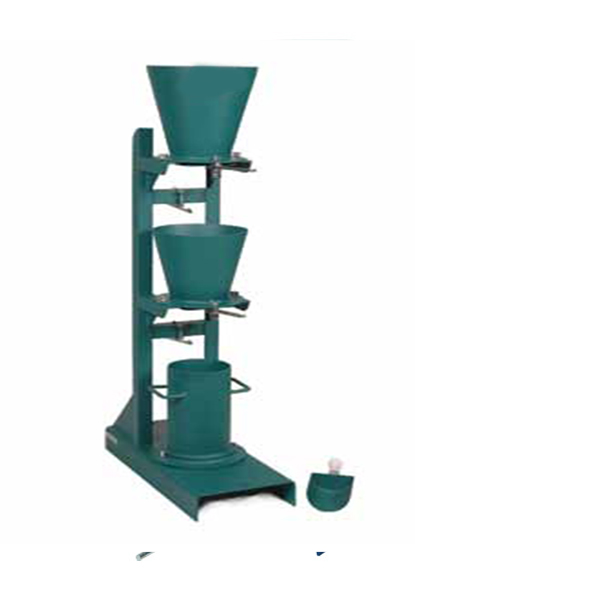-

Compaction Factor Apparatus
CONCRETE TESTING > COMPACTION FACTOR APPARATUS
Compaction Factor Apparatus
| Introduction | The compaction factor is defined as the ratio of the mass of the concrete compacted in the compaction factor apparatus to the mass of the fully compacted concrete. It involves dropping a volume of concrete from one hopper to another and measuring the volume of concrete in the final hopper to that of a fully compacted volume. The results of the compaction factor test can be correlated to slump, although the relationship is not linear. This test is difficult to run in the field and is not practical for large aggregates (over 1 inch) Compared to the slump test, the apparatus is bulky and a balance is required to perform measurements. |
| General Description & Specification: | The apparatus, consist of a rigid frame that supports two conical hoppers vertically aligned above each other and mounted above a cylinder. The top hopper is slightly larger than the bottom hopper, while the cylinder is smaller in volume than both hoppers. To perform the test, the top hopper is filled with concrete but not compacted. The door on the bottom of the top hopper is opened and the concrete is allowed to drop into the lower hopper. Once all of the concrete has fallen from the top hopper, the door on the lower hopper is opened to allow the concrete to fall to the bottom cylinder. The excess concrete is carefully struck off the top of the cylinder and the mass of the concrete in the cylinder is recorded. This mass is compared to the mass of fully compacted concrete in the same cylinder achieved with hand rodding or vibration. Complete with trowel and tamping bar 0-60 cms long X 16mm dia. |
| Optional Accessories: |
Concrete Scoop Straight Edge Weighing Balance |
